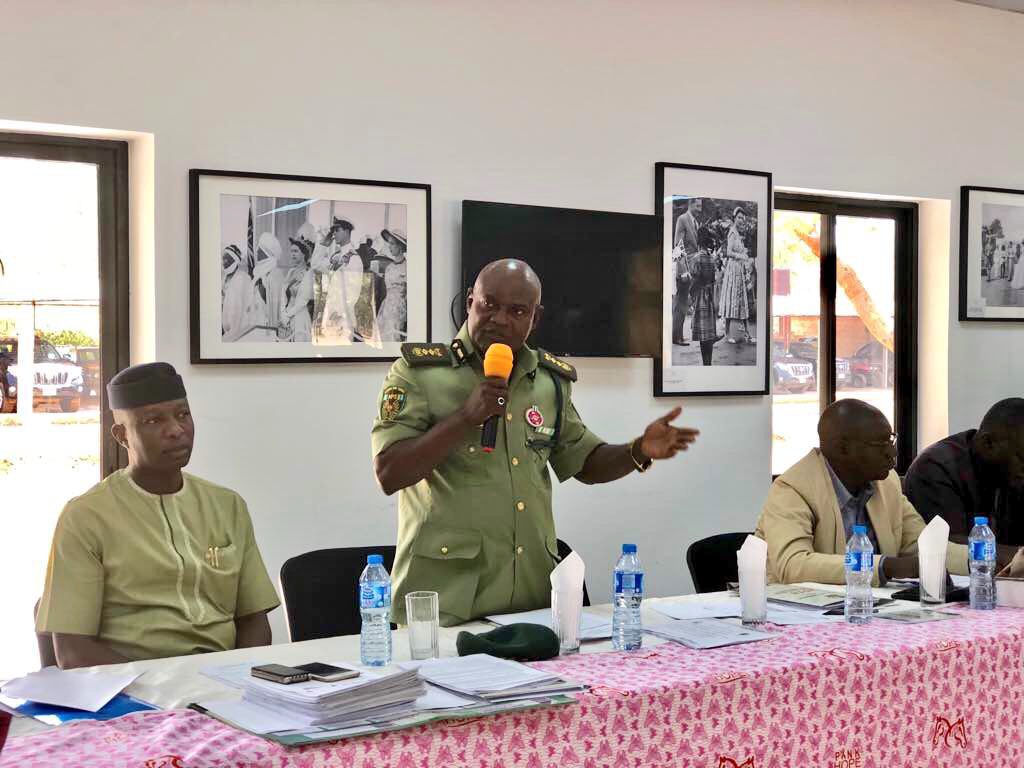The Conservator-General, National Park Service, Dr Ibrahim Goni, on Friday, June 5, 2020 said campaign on COVID-19 prevention should include awareness on the likely origin of the virus from consumption of wildlife.

Goni said this in a statement issued by his Media Assistant, Mr Yakubu Zull, in Abuja, to mark the 2020 World Environment Day with the theme: ”Celebrate Biodiversity.”
According to him, there is a link between consumption of wildlife and zoonotic diseases.
Goni said that zoonotic diseases were caused by virus, bacteria, fungi and parasites that spread between animals and people.
He said COVID-19 pandemic had taken its toll on the world and that Nigeria was not exempted, adding that there was need for aggressive campaign of the likely origin of the virus.
The Conservator-General said the media and health workers should not only sensitise the public on how to wash and sanitise hands, while leaving out information on what brought the virus in the first place.
“To treat any illness successfully, you first of all identify the root cause of the problem, treat the root cause and the sickness goes away.
“The same way it has been thrust into the consciousness of everyone to wash hands with soap, use sanitiser, wear nose masks and maintain necessary distancing, is the same way the campaign about wildlife consumption should be pressed.
“The emergence of COVID-19 has underscored the fact that, when we destroy biodiversity, we destroy the system that supports human life,” he said.
Goni said that increased and sustained closeness and interaction with wildlife had led to many zoonotic diseases ravaging the world, including the deadly COVID-19.
“People still eat and sell various species of dead monkeys, cats, birds, bats, and pangolins, suspected to be at the centre of the COVID-19 scourge.
“COVID-19 is alleged to have originated from hunting, eating and trading in wildlife and this alone should deter people from having close contact with wildlife, but sadly, that is not the case.
“Vampire bats that drink their victim’s blood can transmit diseases, so touching a bat that has a wound, abrasion, or scratch with bare hands, is considered a potential exposure to virus.
”Wildlife belongs to the wild and therefore should be left in the wild,” he said.
Goni urged the public to be cautious when handling animals as pets and for consumption.
He said that the National Park Services had experts who handled these animals in hygienic ways to avoid direct human contact that could become breeding grounds for existing and emerging infectious diseases.
According to him, nature is sending a message to the world that when we respect nature and treat it well, it responds well and takes care of our environment.
“The foods we eat, the air we breathe, the water we drink and the climate that makes our planet habitable, all come from nature and despite all the benefits that nature gives us, we still mistreat it.
“Biodiversity is the foundation that supports all life and it affects every aspect of human life, including natural disease resistance, and climate change mitigation.
“Therefore, removing one element of this web affects the entire life system and can produce negative consequences.
” When we disrupt ecosystems, and we shake viruses loose from their natural hosts, they will need a new host, and often, we humans are the new hosts,” he said.
Goni said it was important for people to understand the link between habitat, environmental damage and the coronavirus.
He said that people should equally understood that destruction of ecosystems made disease outbreaks, including pandemics, more likely.
Goni added that a the destruction of nature could be the underlying cause of the coronavirus crisis.
He said the World Environment Day was the most renowned day for environmental action, celebrated yearly on June 5, to focus public efforts on a pressing environmental issue.
By Okeoghene Akubuike
